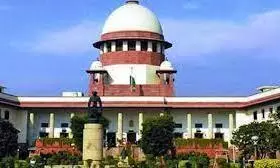DC Edit | Minerals ruling boosts federalism

The Supreme Court’s sweeping 8-1 verdict of a large bench upholding the rights of states to tax minerals serves to redefine a very important principle of federalism at a time when that word has gained notoriety in the Indian context.
The Centre’s right to abridge the rights of states to tax an important natural resource lying in their lands has been snipped at least in respect of mineral wealth though the Centre does enjoy royalty on that wealth, but which is not a ‘tax’, as spelt out by the top court.
With the Budget being somewhat lopsided in its distribution of Union finances, the very principle of federalism in India may call for a redefinition. So much heartache has the Budget caused in its inability to provide equitable distribution to all states, which should have been possible despite two special allies of the BJP in the NDA, that the top court ruling provides a significant debating point.
What the top court said was that Parliament, through the Mines and Minerals Act, cannot restrict states from taxing such resources as minerals. It is not as if these natural resources are evenly distributed across the country. But, given the poor state of the finances of the mineral-rich states of Jharkhand, Chhattisgarh and Odisha, it becomes clear that constraints on their ability to tax minerals are invidious.
The roots of the case lie in the cement company India Cements involving the Tamil Nadu government in a tax dispute in 1989 and were further complicated by a judgment in the case involving Kesoram Industries in 2004. The crux of the disputes was that states claimed a right to tax, which was denied by the verdicts delivered in those years and which have now been redefined by a large bench of the Supreme Court.
How do states raise revenues when the space to do so is severely circumscribed by the federal nature of such taxation is what the Chief Justice raised in obiter dicta. It is hoped that the thinking behind this ruling on minerals would lead to open mindedness on the part of the Union to explore avenues for states to raise resources to spend on education, health and public welfare, etc.

